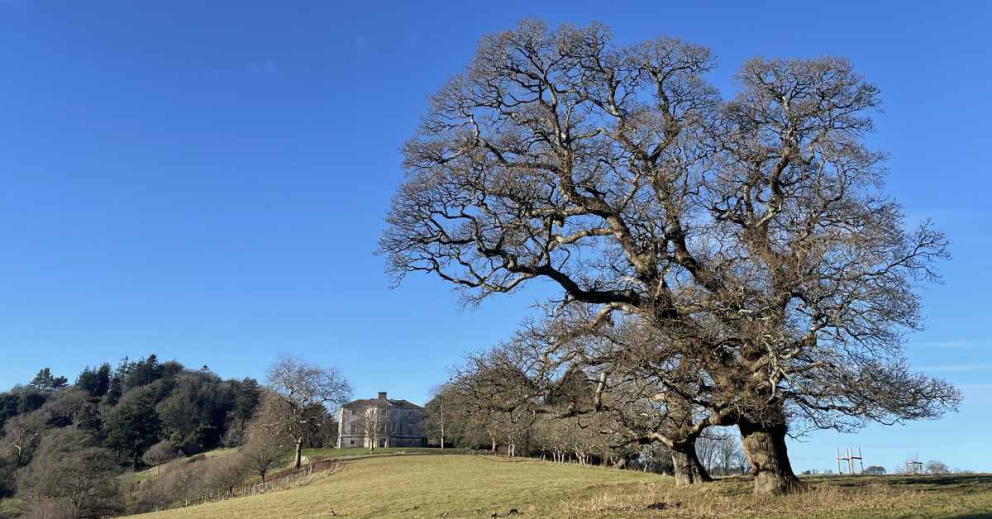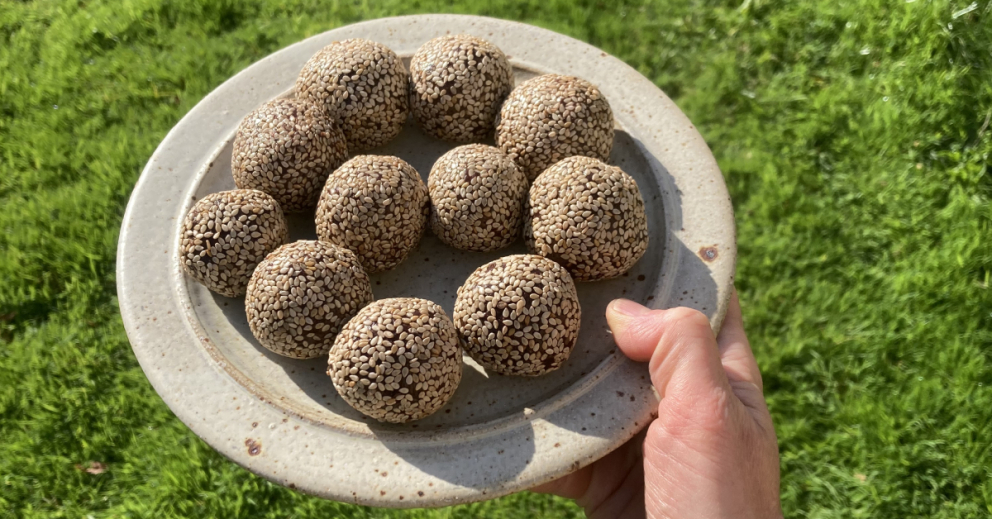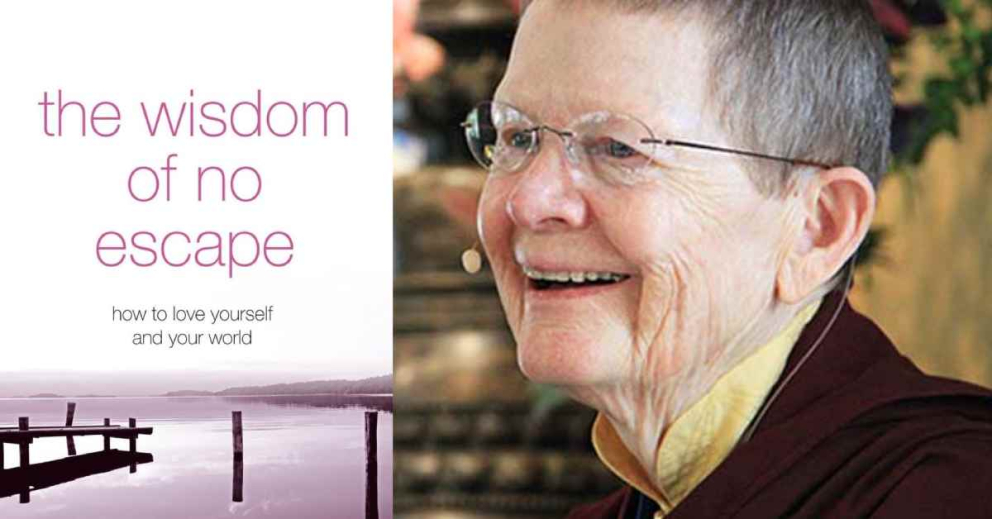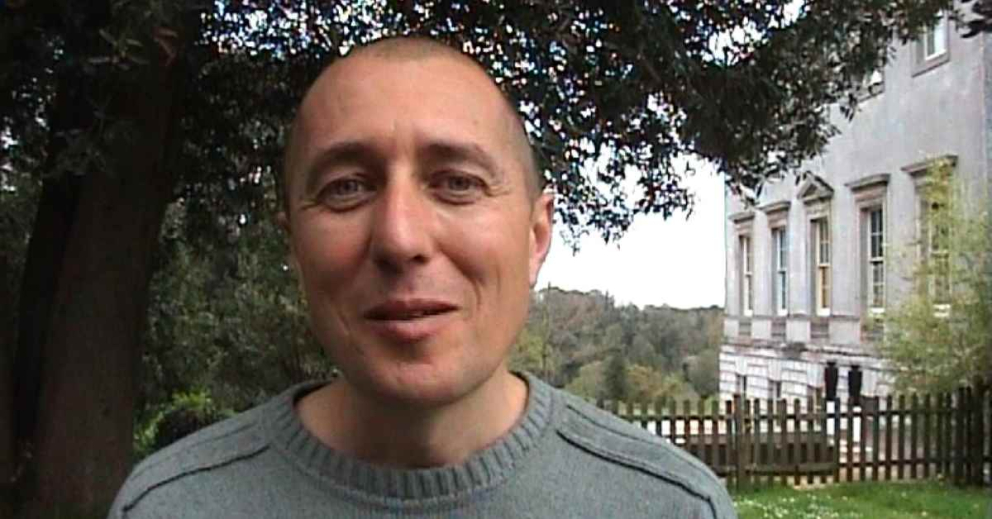With Kindly Curiosity: The Venerable Canda
The Venerable Canda - who is leading the Love To Break All Boundaries: Metta retreat - focuses on kindness and letting go as a means to deepening stillness and is highly informed by the compassion and pragmatism of the early Buddhist texts.
In 2016, Ven Canda founded Anukampa Bhikkhuni Project with Ajahn Brahm - a UK charity aimed at establishing a nun's monastery in the UK.
How did you come to Dhamma practice?
When I first encountered meditation through a 10-day silent retreat in Thailand at 20, I knew I had been looking for this all my life.
That may seem like a strange to say (since not too much of life had gone by!), yet the relief was visceral. It seemed as though everything I heard on that retreat - about suffering, its causes and the way to absolute peace - was already known to me deep inside and now, for the first time, it was being clearly articulated as a practical, step-by-step Path.
The joy was overwhelming and I was deeply moved by the unconditional love with which the teachings had been offered - from the time of the Buddha, right up until today. At the end of the retreat I determined to take practice as far as I could in this life. Subsequently, my travels took on new meaning and purpose. Despite having no responsibilities calling me back home and the skint travellers' world as my oyster, the adventure most compelling and promising of genuine freedom was now the inward one.
My next retreat, four months later, was in India in the tradition of S.N. Goenka (right). As a rather adventurous young person, I loved the discipline and the lengthy sittings that would cause my knees to almost seize up! Moreover, the method, requiring students to objectively observe the changing nature of bodily sensations to which one would normally, unknowingly react, made total sense and resulted in greater contentment and equanimity.
I discovered that there were hundreds of retreat centres throughout India, Nepal, Thailand and beyond, all run on a donation basis, and this opened up new worlds of opportunity to 'give service' as a volunteer. Serving others in Dhamma provided me a beautiful, joyful way to express gratitude for all I continued to receive and alternating 'sitting' with 'serving' retreats strengthened and helped integrate my meditation into daily life.
Meeting and living with people from all over the world and every sub-section of the local society made it clear to me that regardless of race or status in life, we all experience similar mental states. This helped de-personalise any inner struggle I happened to be going through and convinced me of the universal nature and efficacy of the Dhamma.
Since ordaining in Burma as a nun in 2006, I have widened (and softened!) my approach to practice and met many Noble Beings who embody the Dhamma in ways that inspire. However I still feel enormously grateful to Goenkaji for starting me off on this path and emphasising the importance of service and of establishing a regular daily practice, as this is how lasting, long-term inner change comes about.
Tell us about a book that's inspired you
Possibly my favourite contemporary Dhamma book, at once both accessible and profound, is Ajahn Brahm's The Art of Disappearing. This is the book I take everywhere - especially on retreat - and will probably accompany me until I take the introductory advice to 'Get Lost!'.
The teachings emphasise that wisdom is gained not through striving coming from a sense of self, but by putting the causes in place. There is no beating around the bush. Based on a deep, experiential knowledge of the Buddhist 'suttas', Ajahn paints the big picture of suffering and its causes, one of which is seeking happiness in all the wrong places, likened by his teacher, Ajahn Chah, to searching for a tortoise with a moustache!
The language is clear and almost poetic in its simplicity and each page speaks truth straight into my heart.
What does your daily practice look like?
My daily practice very much depends on the time of year.
From the full moon of July, I observe the 'vassa', or monastic 'rains retreat' in the Perth hills, with my root community; a period devoted exclusively to meditation. This is where, after a busy year of working to establish a Dhamma community and monastery for fully ordained nuns in England, I can recharge and deepen my meditation.
The conditions at the forested Jhana Grove retreat centre are as perfect as they get, so I take the precious opportunity to develop samadhi, or stillness, bearing in mind the Buddha's advice to alternate between equanimity, calm/sustained focus and rousing/inspiring the mind.
The retreat is totally unstructured (apart from lunch, which no one ever misses!) and thus allows for finding one's own rhythm - a far cry from the hourly bells on Vipassana retreats. As most people are experienced practitioners there are no guided meditation sessions, but personal guidance is available through interviews.
Every Wednesday there is a Dhamma talk on meditation, where the teacher Ajahn Brahm (left) somehow manages to make everyone feel he is speaking directly to them and we gather for a sutta discussion on Saturdays.
Reminded of and equipped with the basic principles of practice, such as kindness, gentleness, making peace with every experience, we may pick up whatever meditation theme we wish. I usually incline to loving kindness, breath meditation and creative ways of working to undermine the hindrances, after checking in with my mind's current needs. Silence is encouraged but not strictly enforced and the friendly, non-judgemental atmosphere is conducive to relaxation and ease.
Back in England my practice takes on a more dynamic form. Much of my day is spent doing things I wouldn't necessarily choose; so-called 'un-spiritual' things, such as handling copious amounts of emails, volunteer and events management, property hunting and other administrative work, as well as sharing the Dhamma through talks and retreats.
Of course, Dhamma service is VERY much part of the Path - as an active practice of virtue that undermines the sense of self - and I'm learning to 'let go' into duties and remain present with each task at hand. Rousing mental energy through the inspiration of giving helps combat any inner complaining or fatigue. I generally find that rather than take energy away from meditation, the good kamma made through service feeds right back into it.
Being busy also helps me appreciate and make better use of the precious quiet time that I have, which includes daily sittings and occasional retreats. This year is the first time I have had a base since founding our charity, Anukampa Bhikkhuni Project, in 2016, and it has been incredibly satisfying to begin operating as a little monastery in Oxford, open to guests.
Though in her early stages, this is the first monastery in England and one of just three in Europe, where woman can train towards full 'bhikkhuni' ordination, on an equal footing to men. I feel immensely privileged to serve in this capacity and finding meaning in what I do provides a deep source of happiness.
Who or what is inspiring you currently?
The capacity of the human heart for kindness and generosity.
As a monastic living entirely on alms food and donations for other essential requisites of shelter, medicine and robes, my life simply wouldn't be possible unless people were essentially generous.
Reflecting frequently on this makes every day I am able to pursue my calling seem like a blessing. Whilst crimes of greed, hatred, racism and power or sexual abuse mostly head mainstream news, my training as a nun gives me a balanced perspective; helping me perceive and come into contact with people's most beautiful qualities too. I am also inspired by our supporters' dedication to our mission, which shows how deeply they value spiritual friendship and the search for truth.
As well as my own charity's role in bringing about gender equity in monastic Buddhism, I am encouraged to learn of Dhamma groups working on undoing patriarchy, privilege and racism, and am inspired by the compassionate non-violent action of Extinction Rebellion, because overcoming suffering often requires radical, systemic change.
I continue to be deeply moved and inspired by the unconditional love my Teacher radiates and that I experience personally as a close disciple; a love without any expectation, accepting me fully for who I am - imperfections and all. Ajahn Brahm likes to tell his disciples they are forgiven in the 'three time zones': for anything they have done in the past, present or future!
Inspired and suffused by such love, I can endeavour to bring the same unconditional acceptance to my own mind. When viewed in loving awareness, voices of the inner tyrant fade and negativities such as fear, helplessness or agitation lose their power, freeing up so much space for peace.
When I am inwardly resourced, an empathic resonance with the suffering of life can lead to wisely-directed action, rather than overwhelm. I am more than blessed to have a project through which a little more joy and the potential of freedom can be offered to the world.










